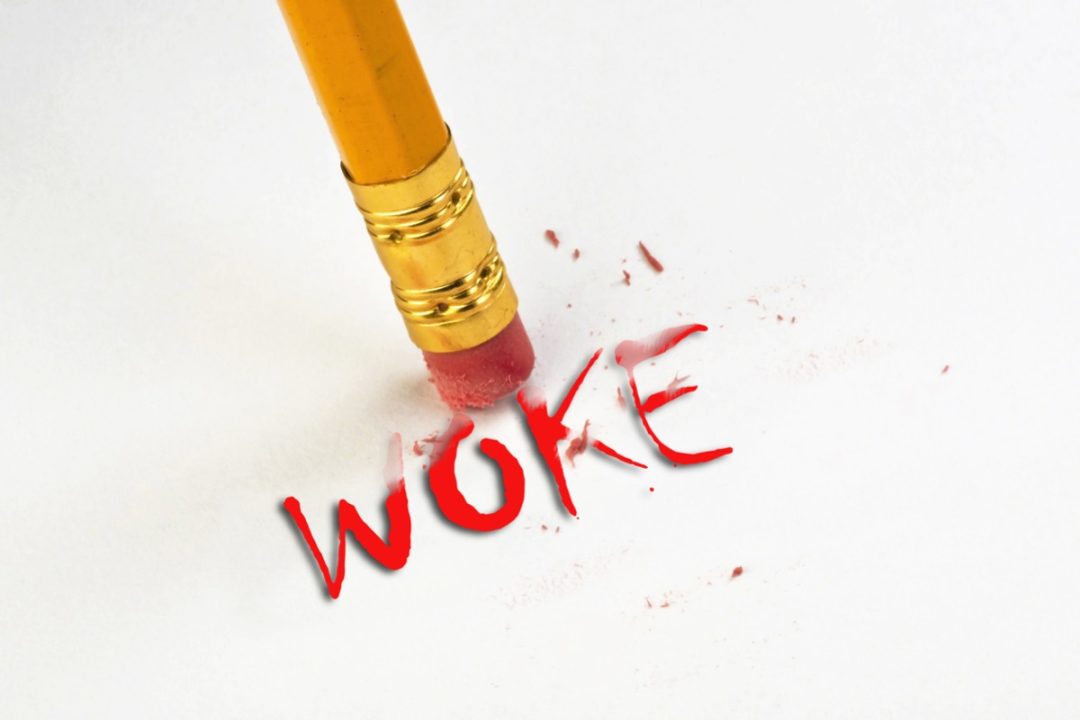
Some things never change, not even the nature of the ever-changing. The mythological Norse god Loki, a malevolent shapeshifter, changed form to outwit those who’d begun to recognize his previous guises. As for the real world and today, are we witnessing this age-old strategy being repeated?
At issue is the notion that, with President Donald Trump’s election and a Sydney Sweeney-esque advertising revolution, “wokeness” is waning. This sentiment is widespread, too, reflected in recent books such as British satirist Andrew Doyle’s The End of Woke and Piers Morgan’s Woke Is Dead.
Well, yes, that’s what wokeness, if I may anthropomorphize it, wants you to think.
So says Australian journalist and Quillette magazine founder Claire Lehmann in a very thoughtful Thursday article at The Dispatch.
Before proceeding, “wokeness” should be defined here. It’s a provisional term, after all, one unlikely to be used much in 20 years, and one that raises objections. So it is, in its most popular sense, “an intensification of political correctness.” (Note that we largely stopped using the latter term as soon as the more pithy “wokeness” became fashionable.) As to political correctness, it is this: The suppression of Truth for the purposes of promoting a left-wing agenda. Yet it has a more fundamental, more basic definition, too.
Evil.
Oh, that has a reductionist and even, perish the thought, religious ring to it, eh? Intellectuals don’t use two-syllable words when centipede-like synonyms have already been disgorged from college campi.
Well, be that as it may, know that this issue cannot be truly understood without grasping that most fundamental distinction: good and evil.
Mutation
Lehmann’s article thesis is this: Yes, a “post-progressive” cultural shift is occurring in the Anglosphere. This is evident in woke excesses’ and identity-based activism’s decline. Nonetheless, hyper-progressivism isn’t retreating — it’s evolving into a more dangerous, economics-driven movement.
This transformation is exemplified, Lehmann asserts, by figures like New York City’s Democratic mayoral nominee Zohran Mamdani, who has created a synthesis of elite cultural fluency and class-based grievances. This suggests, the writer states, that the underlying critical-theory framework will pivot from cultural issues such as “transgenderism” and challenge “capitalism” itself. This could catalyze a broader, more volatile mass political movement.
Lehmann does a good job illustrating Mamdani’s communist orientation. More important, though, is her warning about “wokeness”:
As Mamdani’s ascent reminds us, hyper-progressivism is a shapeshifting force: When one cause loses steam, another emerges to take its place. Beneath the surface lies not a static list of political positions, meant to be taken literally, but a moral grammar that divides the world into good and evil. “We understand Marxism as a living, breathing theoretical framework, which is not and never can be a static set of dogmas,” notes the Red Star caucus [a revolutionary Marxist-Leninist group Mamdani is associated with]. Rooted in critical theory, this framework is portable — and once internalized, it can be redeployed against any perceived system of power. After trying and failing to dismantle the apparent forces of patriarchy, white supremacy, and cisheteronormativity, its next target may also be its oldest: capitalism.
Now, this could bring to mind something a radical from the Students for a Democratic Society once stated. “The issue is never the issue,” he wrote. “The issue is always the revolution.”
This isn’t to say, mind you, that no one believes in this “leftism.” It is to say that there are megalomaniacs who crave control above all and use whatever works to achieve it.
The Demon Behind the Curtain
Lehmann also explains why “wokeness” won’t die, stating:
Such cultural energy persists because support for progressive causes among many young people has never been about individual policy positions. When young people back these causes, they are not merely ticking boxes they agree with as they might for a bill or a candidate; they are embracing an epistemology, a framework for understanding the world. Rooted in critical theory, this worldview organizes reality into a binary of oppressors and the oppressed….
Know here, too, that everyone will have a framework for understanding the world, aka a worldview. But here’s the significant point: When that worldview isn’t based on the Truth, it will be based on a lie. If it isn’t centered around God, the heavenly, it will be centered around the worldly — money and “equality,” for example. If the central focus isn’t the spiritual, it may be the material. And, of course, socialism/communism is a materialistic worldview. (“These other people have more money, more things, than you do, you poor oppressed soul! Vote for me and I’ll deliver you your just due.”)
Moreover, the theistic worldview — recognizing Truth and those expressions of it, the virtues — forestalls socialism/communism, that “gospel of envy,” as Winston Churchill put it. For envy and covetousness, which animate socialism’s embrace, are negated by the virtues of Charity, Gratitude, Humility, Temperance, and Kindness. Virtuous people are unlikely to become socialists.
The Fundamentals
The point is that Lehmann is correct about how “hyper-progressivism is a shapeshifting force.” But a reality is missed. We’ll forever be engaging in a Sisyphean task, playing Whac-A-Mole — and will, in fact, be part of the mole — until we recognize a simple truth.
To introduce it, consider how Lehmann called “capitalism” hyper-progressivism/Marxism’s oldest target. This is true, but note that these isms are themselves not every old, being products of the 19th century. What, however, of the countless millennia before then? Were we ensconced in Eden, with problems being unknown to us? For “capitalism” and “Marxism” didn’t exist.
But good and evil always have. To not make this the focus, and instead fixate on isms, is to not see the forest for the trees. It also blinds us to the cure. We may end up thinking: We’re fine if we just avoid that ism — while forgetting about the lack of virtue that provides the ideal ecosystem for that ism’s flourishing.
Fundamental Change
To analogize it, consider a troubled man who’s often depressed, angry, or anxious and drinks and smokes to great excess. But he then makes a change: He quits the booze and tobacco.
And, subsequently, he gets hooked on porn and begins consistently overeating and grows obese. Would you say he’s getting his life together?
Or has he merely exchanged some sins (or as fashionable moderns say, some “addictions”) for others?
In truth, the man doesn’t just need change of habit but of heart; he needs fundamental transformation. And just as one person can have this problem, so can two people, two thousand, or a whole country full. The point is something that Anglo-Irish philosopher Edmund Burke expressed well.
“It is ordained in the eternal constitution of things that men of intemperate minds cannot be free,” he warned. “Their passions forge their fetters.”
Until we become men of temperate minds, we’ll be damned to flit from one mistake to another. For to whatever degree our people don’t reflect virtue, our policies will reflect vice. This is an immutable law of nations.




